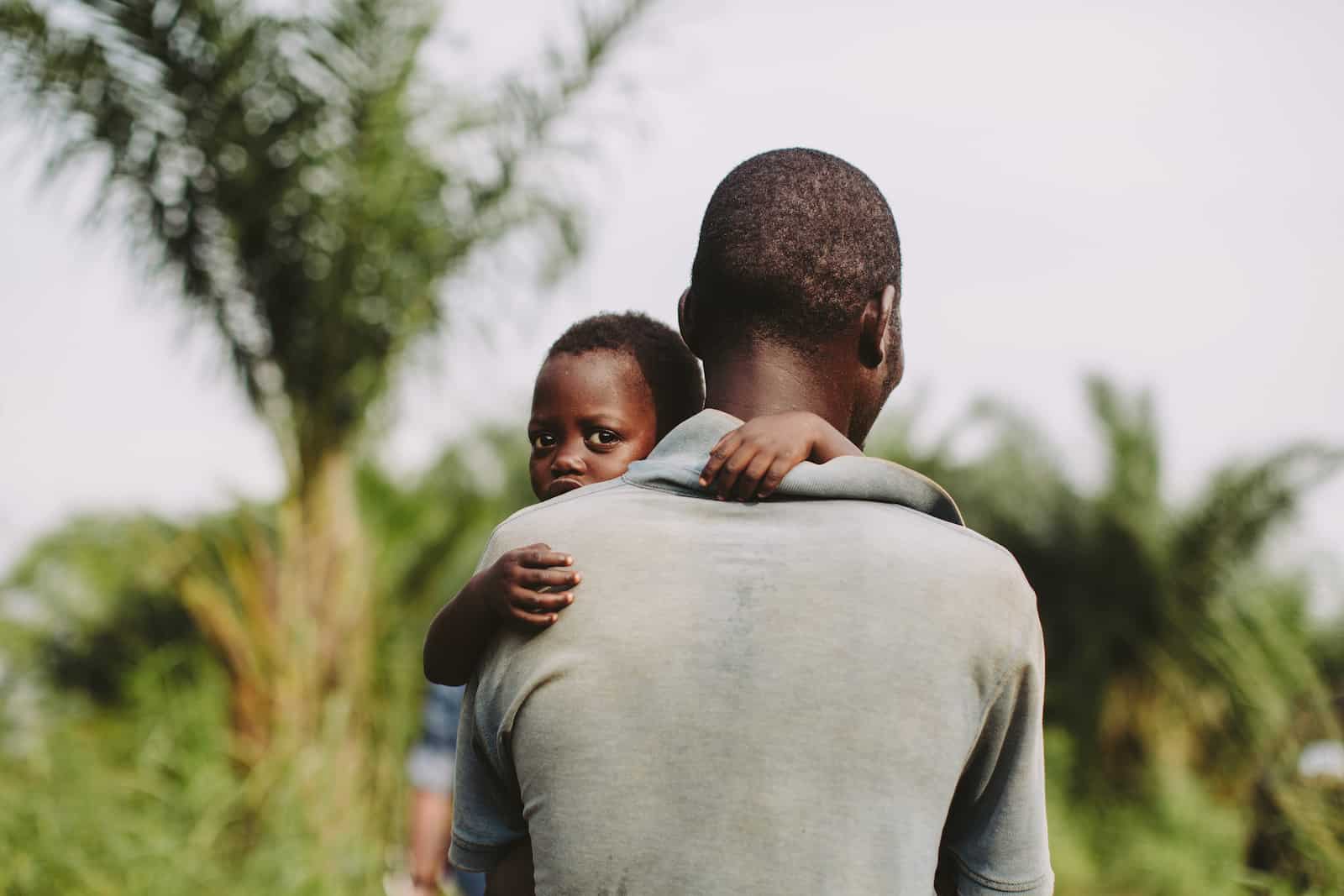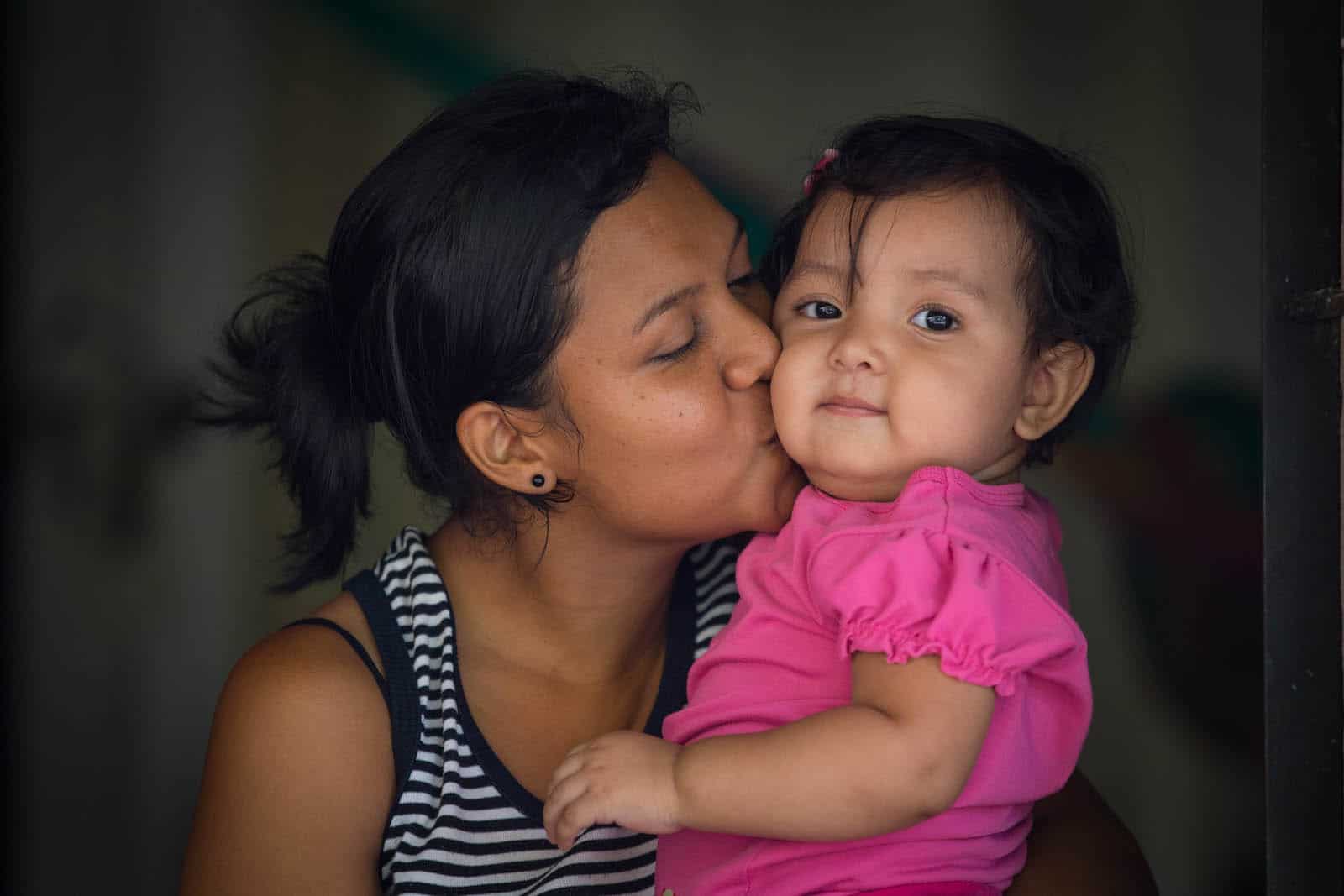Patrick Gray and Justin Skeesuck, authors of “Imprints,“ have been blessed with a unique friendship that spans more than 40 years. Despite the many challenges of a progressive neuromuscular disease robbing Justin of the use of his arms and legs, the two seek to live life without reservations. Their friendship has taken them on many adventures together, most notably their 500-mile wheelchair journey across the vast terrain of northern Spain. In this guest article, they share with us what they’ve learned from their journey about the imprints we leave in the lives of others — starting with our own homes.

We never stop learning. At least we shouldn’t. But in our fast-paced, egocentric society, it is easy to fall into the trap of thinking we have somehow arrived.
And when we have our sights set solely on a destination, we miss out on the beauty of the journey — the beauty God places in our path. These wondrous things are everywhere — the snow-capped peaks of a mountain range, the way our spouse’s eyes light up when they smile, quiet conversations over coffee, walks on cool mornings alone with one’s thoughts, or the joy of a child who knows they are loved.
God’s beauty is everywhere. Sometimes, though, we need to slow down and look for it — and when we do, we are sure to see all the ways we have been impacted by the people He places in our lives. And we begin to see the way we influence others, especially our families. This was our experience while writing “Imprints: The Evidence Our Lives Leave Behind.”
While we cherish every story we share in the pages of “Imprints,” the journey was painful at times. We felt a strong desire to share stories of hope, stories of the beauty found in the simple yet profound. It turns out these stories opened our eyes to many things we could be doing differently.
Particularly with our families.
There are a host of things that one can do to build relationships, cultivate compassionate hearts and change others’ lives for the better; but the foundation for all of that is the environment we create in our homes.
Here are a few of our takeaways from writing “Imprints.” These are the four ways we are doing our best to cultivate compassion within our families and guide our children down a path worth taking.
1. Paint the Picture You Want to See

We take pictures to capture the moments that matter — birthdays, weddings and anniversaries. But the reality is every moment matters. Every interaction with our kids and our spouses or significant others matters. Why? Because every time we speak, we are painting a picture. Our words color the world around us. We can choose to use bright blues, soft yellows, warm oranges and peaceful hues; or we can paint with angry reds, dark grays and black.
Countless scholars, theologians and peacemakers have explored the power that rests in our words. And every religion agrees on their ability to create and destroy.
Our words can be so hard to tame. Even if we never cross the line of abuse, we can still cause lasting damage. Though the tongue has no bones, it is strong enough to break hearts and scar souls.
But understanding the weight and power of our words and actions is the beginning of something beautiful. While our words can cause so much pain, they can also breathe life into those we claim to love.
Think of your words as colors. Choose them with intention and paint a picture you would want to hang on a wall in your home.
2. Be Worth Catching

Every day, we make decisions that impact those we encounter. Often, the effects of the choices we make go unnoticed by us, but someone is always watching. The way we deal with difficult phone calls affects the children who overhear our raised voices. Our demeanor can change a happy moment into an experience filled with stress. A dismissive attitude toward the barista at a coffee shop can ruin their day.
Not only do we have the ability to negatively impact our environment and the lives of those we encounter; our decisions can also influence the choices of others. Whether we like it or not, our behaviors are contagious. Others often mimic or respond to who we choose to be — especially our children.
But the opposite is also true — when we approach stressful situations with grace and dignity, our children are more inclined to do the same. We can choose to be light and love even in the face of hard situations. And when we approach life and the people we encounter with compassion, that same love will flourish in the lives of those entrusted to us.
Who we are is contagious — we need to make sure we’re worth catching!
3. Embrace the Power of Being Known

Every human being desires to know and be known. We see this in our children: Every day, they vie for our attention — whether their behaviors are good or bad, they want to be known by us.
This desire to be known is at the center of so much pain, addiction and depression. The hurt that manifests when we are treated as less than or feel unknown is unlike any other because it makes us feel as if our connection with humanity has been severed.
There are moments in every single day where we have the opportunity to show someone that they are known, that their existence is acknowledged and that they are important.
We do this by getting to know the servers in the restaurants we frequent, calling them by name and taking an interest in their days. We do this by thanking a member of the armed forces or a police officer for the sacrifice they have made to keep people safe. We do this when we take time with our kids, look them in the eye, tell them we love them and make sure our actions reflect the love we proclaim.
4. Live By a Standard of Love

There are few things we desire more for our families than to be fueled by hearts of compassion, but compassion is often learned — and we as parents must live it out if we want our children to do the same.
We believe that this begins with the motivations behind what we do — the standard by which we choose to live.
Jesus gives us clear direction regarding the standard we should embrace in Matthew 22 when he responds to a Pharisee testing his understanding of Scripture. These words completely turned the religious world upside down.
“Teacher, which is the greatest commandment in the Law?” Jesus replied: “‘Love the Lord your God with all your heart and with all your soul and with all your mind.’ This is the first and greatest commandment. And the second is like it: ‘Love your neighbor as yourself.’” Matthew 22:36-39
The two greatest commandments, according to Jesus, are simple!
Love God!
Love others!
That’s it . . .
Or is it?
These are wonderful words to live by, but to stop reading this passage here would do a disservice to the intention of Jesus’ words.
In verse 40, He continues, “All the Law and the Prophets hang on these two commandments.”
This is a statement of profound importance and yet it is often overlooked. Many theological experts point to this passage as referencing all the teachings of the Bible.
All — not some.
This begins in our homes, with our words, with our actions. Every day we are setting blocks into the foundations of our children’s lives. Their understanding of compassion is directly impacted by our ability to extend compassion, grace, love and mercy to them. The standard by which we should measure all the things we do is one of love.
“If I give all I possess to the poor and give over my body to hardship that I may boast, but do not have love, I gain nothing.” 1 Corinthians 13:3
Before we can extend compassion to the world beyond the walls of our homes, we must pour into those we claim to love, the ones we hold dear.
If we want compassion to reign in our homes and the lives of our families, love must be the motivation behind the things we say, the things we do and the rules we live by. Our children are looking to us to show them the way. Whatever path we walk, they are likely to follow. We must strive for love to be the reason behind everything we do, so that our children might do the same.
The pages of “Imprints” are filled with stories that will show you how much influence your life can have on another. Discover the power you have to change the world through the decisions you make each day. Get your copy of “Imprints: The Evidence Our Lives Leave Behind” at imprintsbook.com.
Find more resources for cultivating a compassionate family at everyoneneedscompassion.com
Photos by Ben Adams, Sara Navarro and Craig Thompson.








2 Comments |Add a comment
ABCs to Success: “Always Believe in Christ”! Be Never Negative, Openly Optimistic, & Purley Positive!
Matthew L. Stegall*
It’s great lesson which each of everyone should learn because most of us we set our mind in/on destination of our journey but really I’ve learnt that what matter is not the destination, the matter is how some one paint the picture, be worth catching,embrace the power of being known, and finally live by a standard of love and we live in an environment where most people they don’t know what is right or bad for them. Sincerely i can say right message.
Thank you